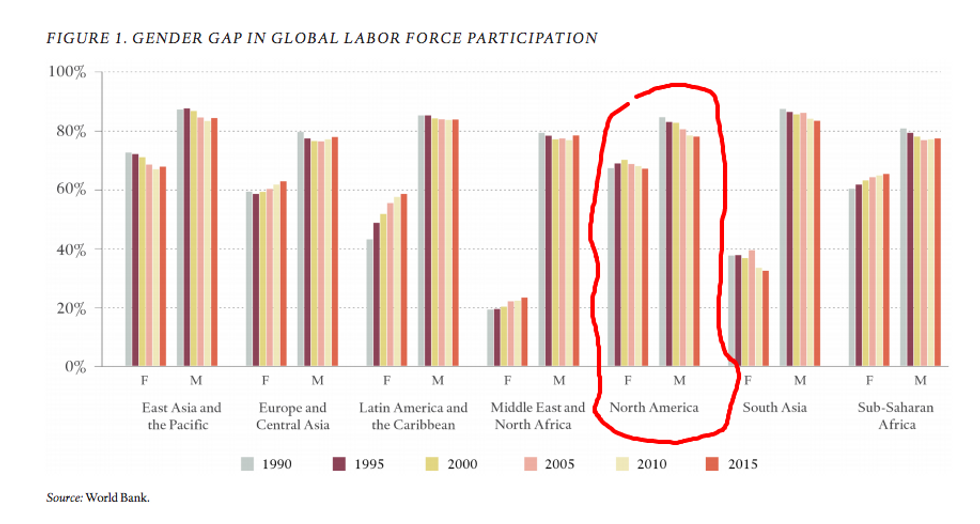As the CoFounder and President of PowerToFly (a.k.a. someone who spends her days working with companies to close the gender gap) I get asked the same question constantly: "why is it important for companies to hire more women?" The answer is simple if you look at the economic data that shows what would happen if we had the same number of men and women working in the United States.
But before we go there (this is only a three paragraph post, so scroll down if you're impatient for the answer), let's look at how the U.S. fares when it comes to the gender gap in global labor force participation. Check out the highlighted chart below that gives higher numbers than the U.S. Department of Labor (about 63% to 79%). In comparison, the Department of Labor data cited on the International Labour Organization site shows "the U.S. labor force climbed during the 1970s and 1980s, reaching 60 percent in 2000. However, in 2010 this figure has declined to 46.7 percent and is not expected to increase by 2018 (DOL 2011)." Either way, the disparity between female and male participation is pretty grim.

Ok. So why is the gap significant, and more importantly, why do we need to close it?
The answer: Reaching gender parity in the United States could boost the GDP by 5%. If you want to grow and fix the economy, one of the fastest ways to do that is to employ more women.
If you want to read more about how gender parity could benefit GDP growth - and how it has made a difference in Japan recently - then read this quick report called Building Inclusive Economies by Gayle Tzemach Lemmon and Rachel Vogelstein. The report was published by the Council on Foreign Relations in June and is full of facts that detail why it's so important to create truly inclusive workplaces that lead to gender diversity.
Here's the full quote where I got the GDP growth fact:
"Studies conducted by the IMF also find the strongest correlation between advancement in gender equality and economic growth in low-income countries. For example, while closing the gender gap in labor force participation in the United States could boost GDP by an estimated 5 percent, gains in lower-income countries such as Egypt could be as high as 34 percent."
Follow me on Twitter @kzaleski if you want more of my thoughts on closing the gender gap. I'll be blogging regularly on https://blog.powertofly.com - so bookmark that link!



